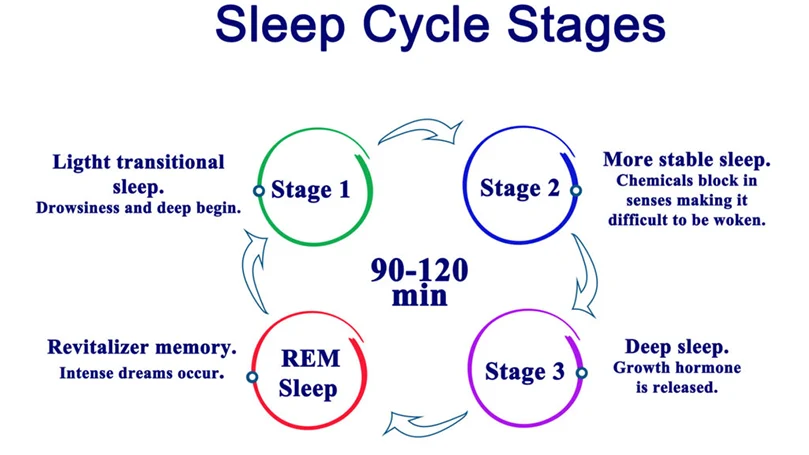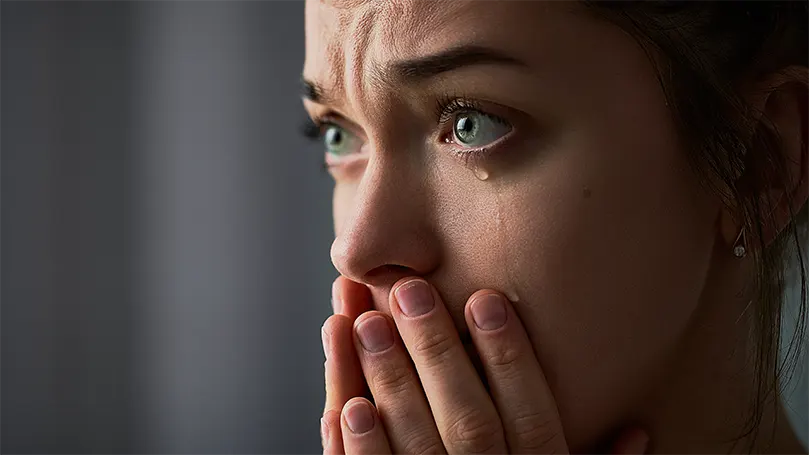What are the sleep facts you did (not) know?
You’ve probably heard of some of the following sleep facts, but we believe you’ll find it interesting to read something about them again. And we also hope that you will learn something new by reading the rest of our article. There are so many facts about sleep that it would not be possible to mention them all, so we have singled out the most useful and fascinating ones.
Full moon affect sleep
Many people experience sleep problems, including falling asleep, in the days leading up to a full moon. There is no scientific explanation why this is so. There are various theories, but none of them is sufficiently supported by facts. This was considered to be a myth for decades. But studies have been conducted and it has been proven that people go to bed later, even an hour later, and that the duration of sleep is shorter when that time of the month comes.

Delayed time of reaching REM sleep is also quite common. We hope that science will offer us an answer in coming years why this happens and how the full moon affects the secretion of melatonin, cortisol and testosterone.
Sleep is split in cycles & phases
We usually talk about sleep as a whole from the moment we go to bed until we wake up. But during that time, many cycles and phases happen that we are not aware of. Each cycle consists of four sleep stages, three are part of non-rapid eye movement (NREM) sleep and one is part of rapid eye movement (REM) sleep, which is actually deep sleep.

Such a cycle lasts about an hour and a half. In order to get enough sleep, at least four such cycles must occur.
Sleep is not a shut off of our body
Our body and mind are very active during sleep, so it is completely wrong to consider sleep as when you turn off the computer. The brain never stops working. The hypothalamus controls body temperature, the heart beats slower and many other processes in your body take place.

Most of these processes are aimed at recovery and preparation for the next day. Even the brain is cleansed of something called metabolic “trash” with the help of the cerebrospinal fluid that washes the brain, similar to waves. So even though you are not aware of all these processes, keep in mind that the brain and body have a lot to take care of during the night, and you probably thought that the only thing the brain does at night is to dream.
Lack of sleep can ruin your health
Lack of sleep is absolutely detrimental to our health. This does not mean that one night without sleep will cause something bad. But when sleep debt accumulates, problems begin. You will first notice problems with focusing and performing basic tasks. If you ignore these symptoms and continue to increase sleep debt, your health will be increasingly compromised.

Sleep deprivation can cause similar symptoms as drugs and mental health conditions, such as hallucinations and paranoia. Extreme cases of sleep deprivation can even lead to death. So don't wait, but start recovering from sleep debt as soon as possible, or your health can be irreversibly damaged.
Genetics do affect sleep quality & pattern
It is proven that genetics have a significant impact on the length and pattern of sleep. For example, a mutation in the DEC2 gene causes people to sleep shorter and even sometimes get insufficient sleep. There are also those who have such genes that the recommended 8 hours of sleep is not enough for them, but they sleep 10 or more hours.

While genes certainly play a significant role, you must not downplay the importance of sleep hygiene. Whatever your genetics are, you can improve your night's sleep with proper sleep hygiene.
Humans can delay sleep
When mammals feel the need to sleep, they do so without delay. More precisely, all mammals do so except humans. If you take a closer look while you are at the zoo or on safari, you will notice when animal need to sleep, it will immediately lie down and fall asleep. This is certainly not the case with humans. Just remember how many times you delayed sleeping to finish homework or even to do something unimportant, like watching the latest episode of a TV show.

Insomnia is caused by stress, family history, night work & diet
Insomnia is a very complex sleep disorder and that is why treating insomnia is so complicated. Virtually anything can impair the quality of our night's sleep, leading first to transient insomnia and then to primary insomnia. Some of the factors that most often affect the occurrence of insomnia are stress, family history and genetics, but also some other things that we can influence such as diet and shift work.

Also, if you can’t sleep two or three nights in a row, it doesn’t automatically mean you suffer from insomnia and need to go to a sleep clinic. Wait to see if this is something temporary before you take actions.
Insomnia is also a crucial part of process of grieving
Sadly, grief is something that every person will experience at least a few times in their lives. Although the grief is common to each member of the human race, the way everyone deals with the grief is individual, as is the intensity.

Insomnia is one of the common problems that go hand in hand with grief. But it doesn’t have to be that bad even if you are sleep deprived for a few days. Scientists have come to the conclusion that insomnia is also a crucial part of the grieving process. Statistics have shown that those who suffer from insomnia during the grieving period are less likely to experience complicated grief, which is a grief that does not lessen over time.
Whales & dolphins fall half asleep
Whales and dolphins are also mammals, but since they live in water, the way they sleep is nothing short of stunning. These marine mammals do not use the whole brain to sleep, but always leave one half of the brain active. This is necessary for breathing and to be able to react in case of sudden danger that is always lurking in the seas and oceans.

Having less sleep makes you hungry
Leptin is a very important hormone that is produced in adipose tissue, and one of the main roles of leptin is to give a signal to the brain when you are full. When you don’t get enough quality sleep, leptin secretion is reduced and this leads to a constant feeling of hunger.

Also, in these moments, secretion of cortisol, a stress hormone, is enhanced, and cortisol is one of the main culprits for binge eating. The secretion of cortisol is blocked by insulin, so the body asks you to eat something sweet.
Spread the word
Recommended reading:
- NREM VS REM
- Sleeping alone
- Sleeping with eyes open
- How sleeping on stomach is a danger to health?
- Pyjamas or undies? What’s the best sleeping attire?
- How Does a Workout Before Bed Affect Sleep?
- Sleeping With Allergies: How To Deal With It?
- The Benefits of Bamboo for Bedtime
- Do You Actually Need The Heaviest Weighted Blanket?
- White Noise For Sleeping: Does It Work?
- Why Do Pillows Turn Yellow And When Is It Happening?













There are no comments yet
"*" indicates required fields